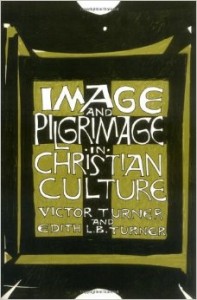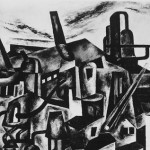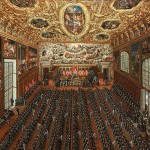I have just been reading William T. Cavanaugh’s essay, “Migrant, Tourist, Pilgrim, Monk: Mobility and Identity in a Global Age.” It is a piece I probably should have read before, and I wish I had read it before I wrote my own little piece on globalization last year. Cavanaugh is best known in academic circles for his writings on politics and violence, most especially The Theopolitical Imagination: Christian Practices of Space and Time and The Myth of Religious Violence: Secular Ideology and the Roots of Modern Conflict. In this piece, some of his signal themes – the role of the modern nation-state in the formation of identity, e.g. – are put to a slightly different use.

Cavanaugh explores the ideal types of transnational identity in a globalized world, the “migrant” and the “tourist.” The migrant is the silent engine of the middle-class economy, the cheap labor that dwells beneath the visible threshold. “The United States needs a readily exploitable source of cheap labor. The purpose of the border is not simply to exclude immigrants, but to define them, to give them an identity.” (344) Our need simultaneously to denounce illegal immigration and to prop up a domestic labor market with those same illegal immigrants bears witness to the contradictions built into our economy and lifestyle. How many of the well-manicured lawns in the gated communities where Donald Trump finds such a warm welcome have been trimmed and cut by the Mexican migrants he so cavalierly slandered?
But what can we do? I don’t employ any illegal migrant workers directly, at least not that I am aware of. I cannot single-handedly transform the global economy; indeed, I find myself just trying to get by, as middle-class wages shrink, too. The middle class worker can feel completely trapped, too. Cavanaugh acknowledges that fact, and he points to the other modern type, the tourist, as the middle class’s effort to transcend that very sense of imprisonment. In such a situation, tourism is a kind of ersatz substitute for religious transcendence. He quotes Dean MacCannell’s book, The Tourist: A New Theory of the Leisure Class: “sightseeing is a kind of collective striving for a transcendence of the modern totality, a way of attempting to overcome the discontinuity of modernity, of incorporating its fragments into a unified experience.” In particular, the modern tourist seeks to discover a kind of lost authenticity through the encounter with the authentic (often premodern or underdeveloped) “other.”
The consumer seeks to make his own the authenticity of single-malt whiskies from remote Highland distilleries and single-origin cocoa from Ecuadorian tribal lands. The progress of modernity depends on the instability of modern identity and the conviction that reality and authenticity are elsewhere. (348)
The restless sense of inauthentic middle-class life thus generates new market frontiers for global capital to explore and even exploit in boutique and artisanal goods from far-flung regions.












